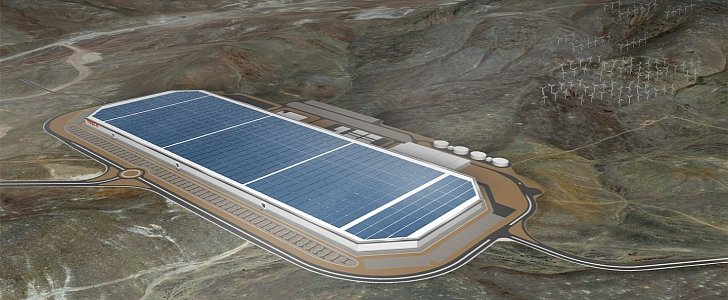Tesla is seeking new partners for the supply of materials required for the production of their batteries.
The record reservations received for the Model 3, as well as the popularity of their Powerwall, made the company look for new partners to supply them with Lithium.
As some of you know, Lithium is required for batteries, and is a material that needs to be sourced from compounds, as it is never found in pure form in nature. Other industries use lithium as well, as it is the lightest metal and the least dense solid element in the Periodic Table. It is also flammable and highly reactive.
A report from Financial Post mentions talks between Tesla and two companies, called Pure Energy Minerals Limited and Bacanora Minerals. As Autoblog notes, neither of the two businesses has produced Lithium-derived elements, but when Tesla is calling, it is best to pick up the order.
The report also says that Lithium demand is expected to double by the end of this decade, so new players might join this industry. Since more automakers are interested in the electric and hybrid vehicle trend, these claims have a good chance of becoming reality.
Tesla’s current partner in the manufacture of batteries is Panasonic, and the two have worked together since the company’s first EV, the Roadster. A Wall Street Journal report published last summer cited Bacanora Minerals, one of the companies mentioned above, as a potential partner for Tesla, as a supplier of Lithium for the latter’s Gigafactory.
While the price of Lithium significantly increased last year, Tesla plans to reduce the cost of batteries using the mineral through mass production. If Elon Musk’s gamble pays off, Lithium-Ion batteries for EVs could become affordable for volume cars.
A similar revolution and price drop happened with aluminum and carbon fiber, both materials being considered exotic at the time of invention. Early uses of aluminum and carbon fiber products were exorbitantly expensive, but mass production eventually landed them into the hands of regular consumers.
Thanks to Elon Musk, electric vehicles, hybrids, and fuel-cell vehicles could become more affordable, even if they don't have a Tesla badge on the hood.
As some of you know, Lithium is required for batteries, and is a material that needs to be sourced from compounds, as it is never found in pure form in nature. Other industries use lithium as well, as it is the lightest metal and the least dense solid element in the Periodic Table. It is also flammable and highly reactive.
A report from Financial Post mentions talks between Tesla and two companies, called Pure Energy Minerals Limited and Bacanora Minerals. As Autoblog notes, neither of the two businesses has produced Lithium-derived elements, but when Tesla is calling, it is best to pick up the order.
The report also says that Lithium demand is expected to double by the end of this decade, so new players might join this industry. Since more automakers are interested in the electric and hybrid vehicle trend, these claims have a good chance of becoming reality.
Tesla’s current partner in the manufacture of batteries is Panasonic, and the two have worked together since the company’s first EV, the Roadster. A Wall Street Journal report published last summer cited Bacanora Minerals, one of the companies mentioned above, as a potential partner for Tesla, as a supplier of Lithium for the latter’s Gigafactory.
While the price of Lithium significantly increased last year, Tesla plans to reduce the cost of batteries using the mineral through mass production. If Elon Musk’s gamble pays off, Lithium-Ion batteries for EVs could become affordable for volume cars.
A similar revolution and price drop happened with aluminum and carbon fiber, both materials being considered exotic at the time of invention. Early uses of aluminum and carbon fiber products were exorbitantly expensive, but mass production eventually landed them into the hands of regular consumers.
Thanks to Elon Musk, electric vehicles, hybrids, and fuel-cell vehicles could become more affordable, even if they don't have a Tesla badge on the hood.

